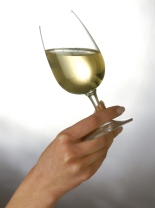Recently I did an interview with the wonderful Kenneth Anderson of HAMS on blogtalkradio:
I’m embarrassed to say that before Kenneth reached out to me about doing the interview, I had not heard of the Harm Reduction Network. But now that I’ve delved into it a bit I realize how aligned it is with my own beliefs and experiences in drinking and in recovery. Kenneth is very passionate and devoted to helping people find what works for them and to reduce the harm to themselves. From their website:
WHAT IS HAMS?
HAMS is a peer-led and free-of-charge support and informational group for anyone who wants to change their drinking habits for the better. The acronym HAMS stands for Harm reduction, Abstinence, and Moderation Support. HAMS Harm Reduction strategies are defined in the 17 elements of HAMS. HAMS offers information and support via a chat room, an email group, and live meetings–as well as in the HAMS Book and the articles on this web site. All information on this site may be reproduced free of charge as long as the HAMS copyright is included.
HAMS supports every positive change. Choose your own goal–safe drinking, reduced drinking, or quitting. For more information please visit our page How HAMS Works. Please also check out the HAMS Podcast and the HAMS Psychology Today Blog.
And on harm reduction:
WHAT IS HARM REDUCTION?
Harm reduction is a set of practical strategies intended to reduce the negative consequences of high risk behaviors such as overdrinking or drug use. Harm reduction is a nonjudgmental approach that attempts to meet people “where they are at” with their drinking or drug use. Instead of demanding perfect abstinence, this pragmatic approach is supportive of anyone who wishes to minimize the harm associated with a high risk behavior such as drinking or drug use. Harm reduction accepts that high risk behaviors such as recreational alcohol intoxication are part of our world and works to minimize their harmful effects rather than simply ignore or condemn them. Harm reduction does not attempt to force people to change in ways which they do not choose for themselves. Harm reduction is a compassionate approach whose primary concern is the increased well-being of its constituency. Moreover an overwhelming body of scientific evidence shows that harm reduction works!!
What strikes me about this approach to recovery — even if ‘recovery’ is not about abstinence but about finding a moderation or alternative approach that works for you wherever you happen to be — is the potential for helping so many more people than if there were just one road to recovery.
Recently I went through a very difficult period and found myself searching desperately for some relief. As I’ve always mentioned, I never closed the door on “the rooms” and vowed to be honest with myself if my current approach to staying sober stopped working. As a result, I found myself attending some local AA meetings.
While I continue to identify with the people and the themes that I find in the rooms, it’s just not me. I’ve talked about my initial experiences in recovery and realize that I very well could have used my rejection by other alcoholics as a rationale to continue drinking as I had been. Had I known about opportunities such as those offered by HAMS, my somewhat rocky road to recovery might have followed a different route.
Definitely check out HAMS, have a listen to the interview, and let me know your thoughts!
 Full disclosure: I don’t drink anymore. More than 6 years ago, on my 33rd birthday, I drank my last glass of wine. It wasn’t particularly memorable except for the fact that it marked what I sometimes think of as the beginning of my new life. More on that later.
Full disclosure: I don’t drink anymore. More than 6 years ago, on my 33rd birthday, I drank my last glass of wine. It wasn’t particularly memorable except for the fact that it marked what I sometimes think of as the beginning of my new life. More on that later.
